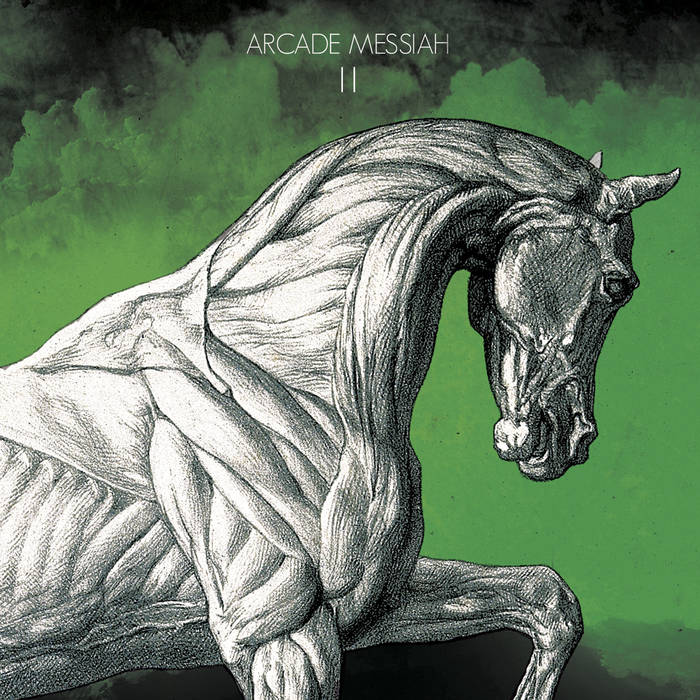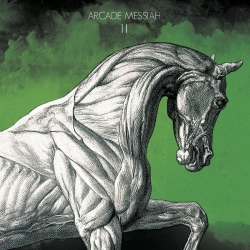English visionary John Bassett is nothing if not ambitious. As the mastermind behind Kingbathmat (one of this generation’s most criminally unrecognized progressive rock outfits), he’s crafted some of the catchiest and most colorful music the genre has seen in a long time. Likewise, his 2014 solo effort, Unearth¸ demonstrated how strong of a singer/songwriter he is without such wild compositions. Of course, last year also saw the release of the debut Arcade Messiah CD, which found Bassett unleashing his wonderfully eccentric and varied instrumental guitar inclinations. Few artists can achieve such consistent heights across multiple projects, which is why it’s such a relief that Arcade Messiah II maintains the excellence of its predecessor. Offering a similar level of dynamic inventiveness, powerful hooks, and emotive passages, the disc is a consistently fascinating auditory adventure that fans of the style will adore.
The sequence begins with “Moon Signal,” whose initial atmospheric arpeggios and synth soon give way to Queensrÿche-esque riffs and straightforward percussion, which are complementing by various intersecting guitar lines. Roughly halfway through, a strong rhythmic shift yields a more technical and fierce progression, which is quite invigorating. All in all, Bassett picked a monstrous track to open Arcade Messiah II. “Red Window” continues the trend with a hellish beginning and ending; however, it’s the tranquil middle section (during which delicate notes collide in a dreamy ether) that makes it stand out, as it exemplifies well the aforementioned prowess for dynamic elegance.
Taking the serenity even further, “Gallows Way” is a slower slice of gorgeous calmness, with more subtle synths providing a grounding on which more guitar arpeggios overlap. In a way, it evokes early Porcupine Tree (and thus, early Pink Floyd too), yet it still feels like an unmistakable Bassett piece. In contrast, both “Fourth Quarter” and “Read the Sky” charge in with more frenzy; in particular, their dual layer guitar lines, coupled with the backing riffs, evoke older Between the Buried and Me assaults, showcasing further how multifaceted Bassett’s arsenal is.
As its name suggests, “Start Missing Everybody” is among the most affective tracks here, with its introductory sorrowful strings and mournful guitar lines eventually dying out so that aggression can take over. In fact, it’s almost as if the selection represents two stages of grieving (depression and anger), so it’s a very strong entry overall. Naturally, Arcade Messiah II closes with its lengthiest and most striving effort, “The Four Horsemen.” In a nutshell, it’s a tour-de-force of all that Arcade Messiah entails, be it frantic guitar riffs complementing equally panicked syncopation or multilayered aural sculptures brimming with profoundness and heart. There are even some trippy vocals in the middle, making it feel a bit like the next treasure from Kingbathmat.
Arcade Messiah II is another masterful collection from Bassett. While his music always impresses on a technical level, he’s never been one to prize virtuosic showmanship over meaning and true creativity. As with its predecessor, Arcade Messiah II contains plenty of truly moving passages and unexpected turns (be they heavy or soft), making it a remarkable example of how to implement storytelling into instrumental music. Sure, its style inherently makes it feel slightly repetitive and tedious if digested in one sitting, but fans of this kind of music will already know what they’re getting into, and as I’ve alluded to all along, it still manages to capture a remarkable amount of inventiveness and sundry surprises. All in all, Arcade Messiah II proves once again why Bassett is one of the most reliable and captivating musicians of his era.


